30% OFF for 3 DAYS ONLY
SEVEN BOOKS ON THE EARLY CHURCH, SHOWN BELOW
OFFER GOOD UNTIL APRIL 3, 2017
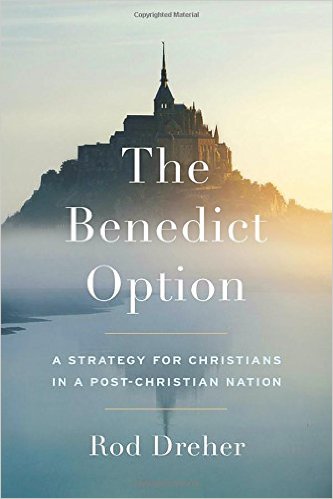
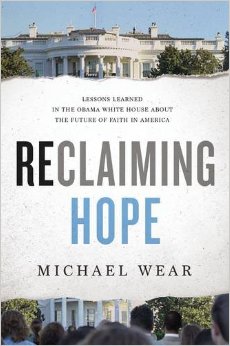 In the last few BookNotes we’ve waded into some rough waters, offering what I hope were balanced and helpful views of books such as the much-discussed The Benedict Option as well as books related to the contretemps about Keller and the Kuyper Center Award at Princeton. Before that we hosted Michael Wear in the store — a very pleasant evening where the former White House staffer talked about his book Reclaiming Hope: Lessons Learned in the Obama White House about the Future of Faith in America. Each of these posts and book-related conversations had a topic hovering nearby: in what way ought
In the last few BookNotes we’ve waded into some rough waters, offering what I hope were balanced and helpful views of books such as the much-discussed The Benedict Option as well as books related to the contretemps about Keller and the Kuyper Center Award at Princeton. Before that we hosted Michael Wear in the store — a very pleasant evening where the former White House staffer talked about his book Reclaiming Hope: Lessons Learned in the Obama White House about the Future of Faith in America. Each of these posts and book-related conversations had a topic hovering nearby: in what way ought 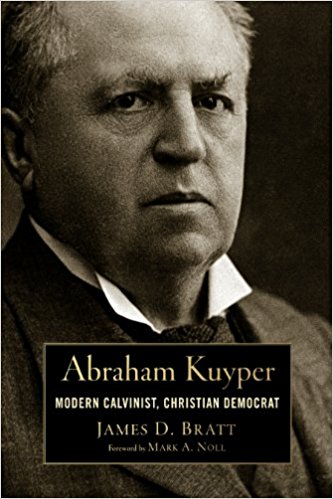 Christian people be involved in the world around them and what rights might society afford those who have religious convictions to live in ways that are true to their own consciences? Or, in more popular theological lingo, channeling the famous book by H. RIchard Niebuhr, what is the relationship between Christ and culture? Or, again, as one of the early church fathers asked “What does Athens have to do with Jerusalem?” It remains a live-wire question.
Christian people be involved in the world around them and what rights might society afford those who have religious convictions to live in ways that are true to their own consciences? Or, in more popular theological lingo, channeling the famous book by H. RIchard Niebuhr, what is the relationship between Christ and culture? Or, again, as one of the early church fathers asked “What does Athens have to do with Jerusalem?” It remains a live-wire question.
As a bookseller working with a particular purpose, this question looms large for us: if God cares about all of life being redeemed and calls the church to follow Christ into all zones of life, then Christian people need books for — as the old hymn puts it — “the living of these days.” We here at the shop carry books on business and science and film and art and sports and technology and race and sexuality and farming and on and on because God cares and because humans are tasked to represent God’s ways in God’s world. Books offer help for you and me to do this, to serve God, in Christ, missionally in the world. I suspect you’ve got questions about how better to do this — live out your faith, day to day — and books, we believe, can help inform and inspire; books can help us figure out how to relate ancient faith to modern times, which is to say our faith can become more “culturally-relevant.” If our relationship to culture doesn’t matter, if it isn’t all that important, or just some personal belief in one’s own heart, if we’re not sent into the world to somehow be used by God, perhaps as salt and light and leaven, then much our inventory is of lesser importance, not as strategic as we think it is, and this newsletter is often inexplicable.
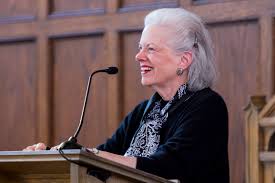 Fleming Rutledge — the wonderful author of books such as The Crucifixion, The Undoing of Death, The Seven Last Words from the Cross and more — and her husband complemented me after I highlighted a few of her books at event with her last week, declaring with enthusiasm that I was good at marketing. I don’t know about that, but I agreed that I can work myself into a good lather over books I believe in, resources that I think will bring pleasure and goodness and insight and truth to readers, as her learned ones surely do. And even she, theologian that she is, knows a bit about culcha: she has a collection of sermons sharply called The Bible and the New York Times as well as a very thorough literary study called The Battle for Middle-earth: Tolkien’s Divine Design in “The Lord of the Rings.”
Fleming Rutledge — the wonderful author of books such as The Crucifixion, The Undoing of Death, The Seven Last Words from the Cross and more — and her husband complemented me after I highlighted a few of her books at event with her last week, declaring with enthusiasm that I was good at marketing. I don’t know about that, but I agreed that I can work myself into a good lather over books I believe in, resources that I think will bring pleasure and goodness and insight and truth to readers, as her learned ones surely do. And even she, theologian that she is, knows a bit about culcha: she has a collection of sermons sharply called The Bible and the New York Times as well as a very thorough literary study called The Battle for Middle-earth: Tolkien’s Divine Design in “The Lord of the Rings.”
So here we are, selling books in a less than bookish age, presuming a certain view of the human person (made in God’s image with the ability to grow and learn, and with God-given responsibility) and the culture (good, the very theater of God, as John Calvin called it, the given location for our life in the world, even if fallen and distorted, like it or not) and the nature of discipleship (not primarily inner-focused, but lived, in, but not of, the world around us.) As Calvin Seerveld once quipped, I think in Rainbows for the Fallen World, “culture is not optional.” We can’t chose, finally, to disengage. It is just a matter of how we engage. Books help us navigate life in these times and are indispensable aids in our faithfulness here within the human story on planet Earth. It’s as simple as that.
Again, the books mentioned above by Dreher and Wear, and the situation with Keller and Kuyper about which I wrote most recently, seem to have something lively to do with this question, this Christ and culture matter. It raises questions of pluralism, the question of how we do or don’t tolerate those who are different then we are, how we order society given such religious and cultural differences among us. These recent books and situations invite us to ponder with greater urgency questions of how we relate to our culture, and if we can live into, as Richard Mouw put it in his great book and great book title Uncommon Decency: Christian Civility in an Uncivil World.
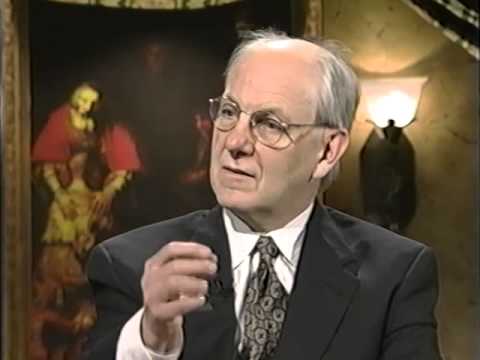 Which brings me to this.
Which brings me to this.
Last night we had the great privilege of hearing, at St. Mary’s Ecumenical Institute in Baltimore (housed since the 1970s in the Roman Catholic St. Mary’s Seminary, the oldest in the country), the imminent scholar of the early church, Robert Louis Wilken. Dr. Wilken is a distinguished fellow at the St. Paul Center for Biblical Theology and is an emeritus professor of church history at the University of Virginia.
His remarkable lecture at St. Mary’s was based on a forthcoming book that he is finishing up that will tentatively be called Liberty in the Things of God: Christian Origins of Religious Freedom. I am not able ![]() to re-tell much of what the good doctor taught us about Tertullian and the other early church fathers, but his main point was that the older story of the development of freedom of conscience in the West as a creation of the reasonable secular humanists of the Enlightenment, pushing back against sectarian religious impulses that caused wars and inquisitions is inadequate, that it was the earliest voices of the early Christians who cried out for religious freedom. He is not the first to say this but he documented it copiously.
to re-tell much of what the good doctor taught us about Tertullian and the other early church fathers, but his main point was that the older story of the development of freedom of conscience in the West as a creation of the reasonable secular humanists of the Enlightenment, pushing back against sectarian religious impulses that caused wars and inquisitions is inadequate, that it was the earliest voices of the early Christians who cried out for religious freedom. He is not the first to say this but he documented it copiously.
He also told a splendid story of how Thomas Jefferson (speaking of reasonable secularists wanting freedom from religion) bought a book from one particular bookseller — he apparently had special ordered it, from a bookman in Richmond — which included one of the apologies of Tertullian, making a case for religious toleration. Jefferson underlined a particular sentence in the book he had ordered (Wilken discovered this by carefully sleuthing through the  Library of Congress, finding original books there, of course, from Jefferson’s own library.) This underlined sentence from the third century theologian made its way into one of Jefferson’s own books. Ahh, I thought, the power of a bookseller to get the right old book into the hands of a history-maker! I was encouraged and took pride as Wilken told the colorful story. His point was less about the virtue of the bookseller but was clear: even the wonderful American ideas — conscientious objection, free expression and the like — came not just from Quakers like William Penn or Baptists like Roger Williams or Reformers citing the developing tradition of human rights based on reformation thought, but it came (via Jefferson, in this case) from the early church! This is apparently astonishing news in the academy and the topic warranted Wilken delivering the prestigious Dunning Lecture in Baltimore, and will make its way into a bigger book, perhaps next year.
Library of Congress, finding original books there, of course, from Jefferson’s own library.) This underlined sentence from the third century theologian made its way into one of Jefferson’s own books. Ahh, I thought, the power of a bookseller to get the right old book into the hands of a history-maker! I was encouraged and took pride as Wilken told the colorful story. His point was less about the virtue of the bookseller but was clear: even the wonderful American ideas — conscientious objection, free expression and the like — came not just from Quakers like William Penn or Baptists like Roger Williams or Reformers citing the developing tradition of human rights based on reformation thought, but it came (via Jefferson, in this case) from the early church! This is apparently astonishing news in the academy and the topic warranted Wilken delivering the prestigious Dunning Lecture in Baltimore, and will make its way into a bigger book, perhaps next year.
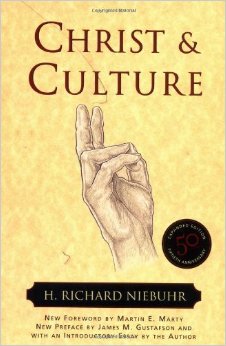 All of this circles back to Rod Dreher and how fast-paced and secularized modernity has eroded notions of religious identity for many of us and how the modern state has too often minimized notions of religious liberty. What do we do in times such as these? The BenOp is one response. Tim Keller’s Redeemer Presbyterian’s neo-Kuyperian worldview leading to robust sorts of gracious, evangelical cultural engagement is another. Liberal social gospel approaches from early 20th century Protestants are perhaps another. Niebuhr outlines five such options in the aforementioned Christ and Culture.
All of this circles back to Rod Dreher and how fast-paced and secularized modernity has eroded notions of religious identity for many of us and how the modern state has too often minimized notions of religious liberty. What do we do in times such as these? The BenOp is one response. Tim Keller’s Redeemer Presbyterian’s neo-Kuyperian worldview leading to robust sorts of gracious, evangelical cultural engagement is another. Liberal social gospel approaches from early 20th century Protestants are perhaps another. Niebuhr outlines five such options in the aforementioned Christ and Culture.
Most of these approaches — from the BenOp to Kuyper to Keller and more — tend to miss the earliest of church responses. (Dreher’s Benediction Option draws on 5th century monasticism, and my post here lists a bunch of books to help us consider how Benedictine spirituality could be useful today, not primarily as an option of cultural resistance, but just as a wholesome sort of guide for balanced spiritual living. Dreher is right, I think, to point us in that general direction about spiritual formation in community.)
And so, here are a handful of books that are about the early church, particularly as they formed their own manners and ways of being in the world, how they related to the Roman Empire, and how the Roman Empire related to them. These classic books by Robert Louis Wilken (and a few others) are titles we routinely carry, but we have extra copies from the book signing event. We will send some back, soon, so we have this sale for 3 days only. We offer you 30% off any of these shown below. Offer only good through the end of day April 3, 2017. While supplies last.
3 DAY SALE — 30% OFF through April 3, 2017.
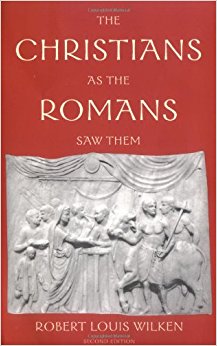 The Christians as the Romans Saw Them Robert Louis Wilken (Yale University Press) $15.95 What a great little book, erudite, influential, important, and so interesting. Numerous reviewers mention how gracious and eloquent the writing is, and it is true. It is not too lengthy nor expensive. The Atlantic Monthly review wrote that it “should fascinate any reader with an interest in the history of human thought.” One reviewer said it “draws upon well-known sources–both pagan and Christian–to provide the general reader with an illuminating account… of how Christianity appeared to the Romans before it became the established religion of the empire.” This stuff should be better known among us, I think, and I’m struck by how much we can learn in one little volume. Very nicely done.
The Christians as the Romans Saw Them Robert Louis Wilken (Yale University Press) $15.95 What a great little book, erudite, influential, important, and so interesting. Numerous reviewers mention how gracious and eloquent the writing is, and it is true. It is not too lengthy nor expensive. The Atlantic Monthly review wrote that it “should fascinate any reader with an interest in the history of human thought.” One reviewer said it “draws upon well-known sources–both pagan and Christian–to provide the general reader with an illuminating account… of how Christianity appeared to the Romans before it became the established religion of the empire.” This stuff should be better known among us, I think, and I’m struck by how much we can learn in one little volume. Very nicely done.
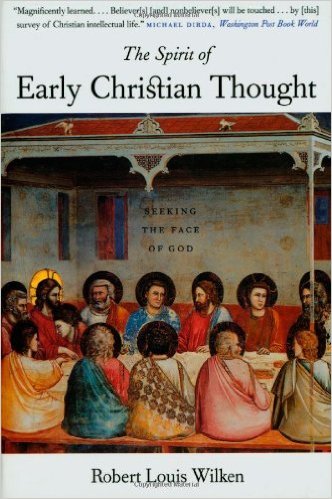 The Spirit of Early Christian Thought: Seeking the Face of God Robert Wilken (Yale University Press) $22.00 This book came out about a decade ago and remains a true standard, eloquent and fascinating, important and good. It was a real honor to get to display them for Dr. Wilken at St. Mary’s.
The Spirit of Early Christian Thought: Seeking the Face of God Robert Wilken (Yale University Press) $22.00 This book came out about a decade ago and remains a true standard, eloquent and fascinating, important and good. It was a real honor to get to display them for Dr. Wilken at St. Mary’s.
I love the marketing copy about the book: “In this eloquent introduction to early Christian thought, eminent religious historian Robert Louis Wilken examines the tradition that such figures as St. Augustine, Gregory of Nyssa, and others set in place. These early thinkers constructed a new intellectual and spiritual world, Wilken shows, and they can still be heard as living voices in the modern world.In chapters on topics including early Christian worship, Christian poetry and the spiritual life, the Trinity, Christ, the Bible, and icons, Wilken shows that the energy and vitality of early Christianity arose from within the life of the Church. While early Christian thinkers drew on the philosophical and rhetorical traditions of the ancient world, it was the versatile vocabulary of the Bible that loosened their tongues and minds and allowed them to construct the world anew, intellectually and spiritually. These thinkers were not seeking to invent a world of ideas, Wilken shows, but rather to win the hearts of men and women and to change their lives.”
It continues:
Early Christian thinkers set in place a foundation that has endured. Their writings are an irreplaceable inheritance, and Wilken shows that they can still be heard as living voices within contemporary culture.
Here are a few of the notable reviews from important sources indicating the caliber and significance of this volume.
“Get The Spirit of Early Christian Thought and read it. Read it slowly, letting Wilken take you by the hand. . . . Let him show you a more excellent way.” — Richard John Neuhaus, First Things
“Magnificently learned and deeply felt. . . . An attentive reader of Wilken, whether believer or nonbeliever, will be touched anew by his survey of Christian intellectual life.” –Michael Dirda, Washington Post Book World
“This is not a book written for the academy but for all readers. . . . Wilken provides for a new generation . . . a sense of what is important about those astonishing teachers of the early church who instructed the ages after them.” — Luke Timothy Johnson, America
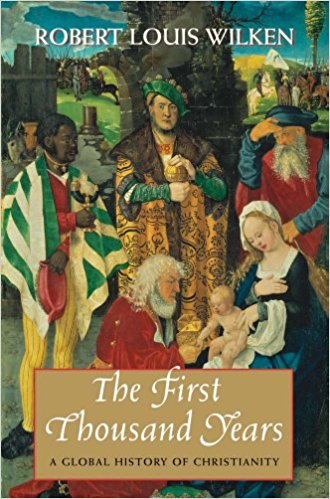 The First Thousand Years: A Global History of Christianity Robert Louis Wilken (Yale University Press) $22.00 Increasingly there has been academic attention to the global nature of church history and there have been new and surprising titles about the spread of Christianity centuries ago, and how the church grew and struggled, to supplement more typical tellings of the tale which focus on Europe. This book came out in 2013 and is required reading in many colleges and seminary courses. It is considered a one of the best of its kind. We were thrilled to have this on sale at the author event in Baltimore and are happy to offer you a great savings now.
The First Thousand Years: A Global History of Christianity Robert Louis Wilken (Yale University Press) $22.00 Increasingly there has been academic attention to the global nature of church history and there have been new and surprising titles about the spread of Christianity centuries ago, and how the church grew and struggled, to supplement more typical tellings of the tale which focus on Europe. This book came out in 2013 and is required reading in many colleges and seminary courses. It is considered a one of the best of its kind. We were thrilled to have this on sale at the author event in Baltimore and are happy to offer you a great savings now.
Listen to this lovely quote from the esteemed memoirist Carlos Eire, author of the popular Waiting for Snow in Havana: Confessions of a Cuban Boy
A marvelous and unique survey, learned and authoritative, yet also a perfect introduction to the early history of Christianity. Robert Wilken redraws many boundaries, expanding horizons, summarizing and analyzing with consummate skill. This beautifully written book sets new standards on multiple levels, and should stand for a long time as the benchmark by which all other surveys are measured.
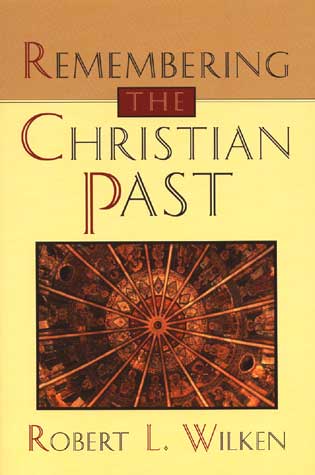 Remembering the Christian Past Robert Louis Wilken (Eerdmans) $21.50 Readers in the know about these things realize Wilken is a major thinker, one of the most esteemed scholars in this field, and it made sense that decades ago Eerdmans got him to compile a collection of essays, pithy and smart, wise, and elegant, making a case that we should draw on the past, that knowing something about church history matters, and that the earliest days of the church under the Roman Empire — and on into Christendom — generated insights (and problems) that are with us yet today.
Remembering the Christian Past Robert Louis Wilken (Eerdmans) $21.50 Readers in the know about these things realize Wilken is a major thinker, one of the most esteemed scholars in this field, and it made sense that decades ago Eerdmans got him to compile a collection of essays, pithy and smart, wise, and elegant, making a case that we should draw on the past, that knowing something about church history matters, and that the earliest days of the church under the Roman Empire — and on into Christendom — generated insights (and problems) that are with us yet today.
This book is important for a variety of reasons; years ago my sales rep explained to me how important Dr. Wilken’s was. He had been the President of the American Academy of Religion, an important academic guild. One reviewer notes that this collection begins with Wilken’s important 1989 presidential address to the American Academy of Religion, “Who Will Speak for the Religious Traditions?” where he argued that “the post-Enlightenment academic discourse into which the study of religion has fallen marginalizes the real character and experience of religion for the sake of the researcher’s objective distance. Modern teaching about religion, he says, is too often teaching about something else. This collection of essays, by contrast, defends the place of religious truth, both dogma and experience, within the conversation of religious studies.”
This is an outstanding, still vital book, introducing you to the many of the most important urgent voices, voices that might help us resist secularized modernity in our time as they thought through the implications of fidelity in their own.
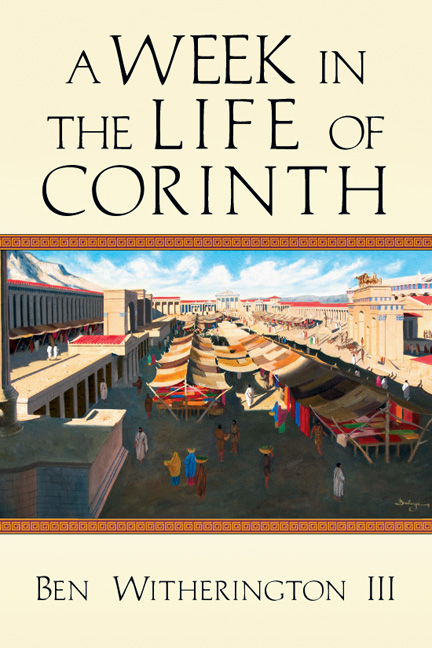 A Week in the Life of Corinth Ben Witherington III (IVP Academic) $16.00 While this is published by a scholarly, academic imprint, I must say it is good for nearly anyone, even high school students. It is a work of historical fiction, an imaginative and creative way to introduce us to what was going on in Corinth about the time the Apostle Paul wrote his famous letters to them. This is a one of a kind sort of window into the travels around the Mediterranean basin from which Paul wrote, and, more, how the Christians in this Greco-Roman city lived, related to their culture, and how they were caught up in the cultural, sexual, ethnic, and philosophical trends of their day. Fascinating for any study of the Bible book called Corinthians, but, more broadly, for anyone wondering how the early Christians really lives and related to their social world.
A Week in the Life of Corinth Ben Witherington III (IVP Academic) $16.00 While this is published by a scholarly, academic imprint, I must say it is good for nearly anyone, even high school students. It is a work of historical fiction, an imaginative and creative way to introduce us to what was going on in Corinth about the time the Apostle Paul wrote his famous letters to them. This is a one of a kind sort of window into the travels around the Mediterranean basin from which Paul wrote, and, more, how the Christians in this Greco-Roman city lived, related to their culture, and how they were caught up in the cultural, sexual, ethnic, and philosophical trends of their day. Fascinating for any study of the Bible book called Corinthians, but, more broadly, for anyone wondering how the early Christians really lives and related to their social world.
Listen to what the very sharp New Testament scholar Michael Bird writes of it:
If you want to know what it would have been like to live in ancient Corinth, spend a week in the life of a freedman, traverse the olive groves and cobblestone streets, survive the cutthroat politics of a Greek city, encounter pagan priestesses and converse with a Jewish tentmaker named ‘Paulos, ‘ then Ben Witherington has written the book for you. This short novella, with pictures and explanations of customs in ancient Corinth, provides a window into the world of Paul’s Corinthian letters. Witherington creatively brings the setting of Paul’s Corinthian ministry to life with historical rigor and narrative artistry. Witherington brings to us the sights, smells, sounds and culture of Corinth as the apostle Paul knew it.
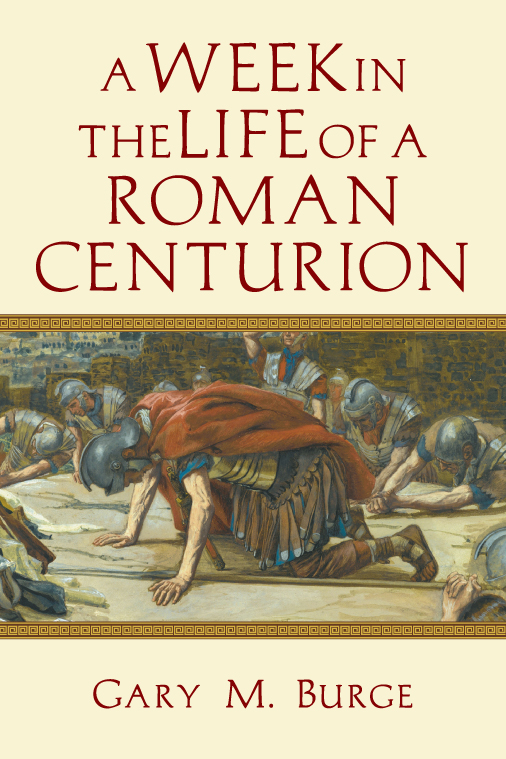 A Week in the Life of a Roman Centurion Gary Burge (IVP Academic) $16.00 This, too, is a very creatively done bit of historical fiction, a story set which, I believe, can help readers grapple with the “Christ and culture” questions. In this case, we get a window into the life of the Roman Empire, told through the eyes of a centurion mentioned in the Biblical text who seeks a healing for his Jewish slave from the itinerant Rabbi from Galilee. It is fast-paced, full of first century color, and highly recommended — especially for this time of the church year when we think of the Roman’s imperial power in the execution of Jesus. We really can appreciate our well known Bible stories more deeply when we can imagine the life of first century Rome and its environs.
A Week in the Life of a Roman Centurion Gary Burge (IVP Academic) $16.00 This, too, is a very creatively done bit of historical fiction, a story set which, I believe, can help readers grapple with the “Christ and culture” questions. In this case, we get a window into the life of the Roman Empire, told through the eyes of a centurion mentioned in the Biblical text who seeks a healing for his Jewish slave from the itinerant Rabbi from Galilee. It is fast-paced, full of first century color, and highly recommended — especially for this time of the church year when we think of the Roman’s imperial power in the execution of Jesus. We really can appreciate our well known Bible stories more deeply when we can imagine the life of first century Rome and its environs.
The reviews on this are fun to read — by those who enjoy historical fiction, and, more, from Bible scholars and teachers. Burge is a prof at Wheaton and well-respected (he is also somewhat of a peace-maker in his multi-faceted view of the conflicts in the Holy land and has done work there, and writing, about the role of land in those conflicts.) He has done a great job with this title.
Here is what Craig Blomberg, a New Testament prof at Denver Seminary, wrote:
Biblical scholars are not typically known for writing historical novels, much less gripping page-turners. Gary Burge, however, has accomplished both of these feats. Fully true to the historical-cultural setting of the early first-century Roman Empire, this story not only makes the New Testament world come alive but it creates one very plausible scenario of the career and family of the Capernaum centurion of Matthew 8:5-13 and Luke 7:1-10. The characters become so real that I was even tearing up at the end of Burge’s story!”
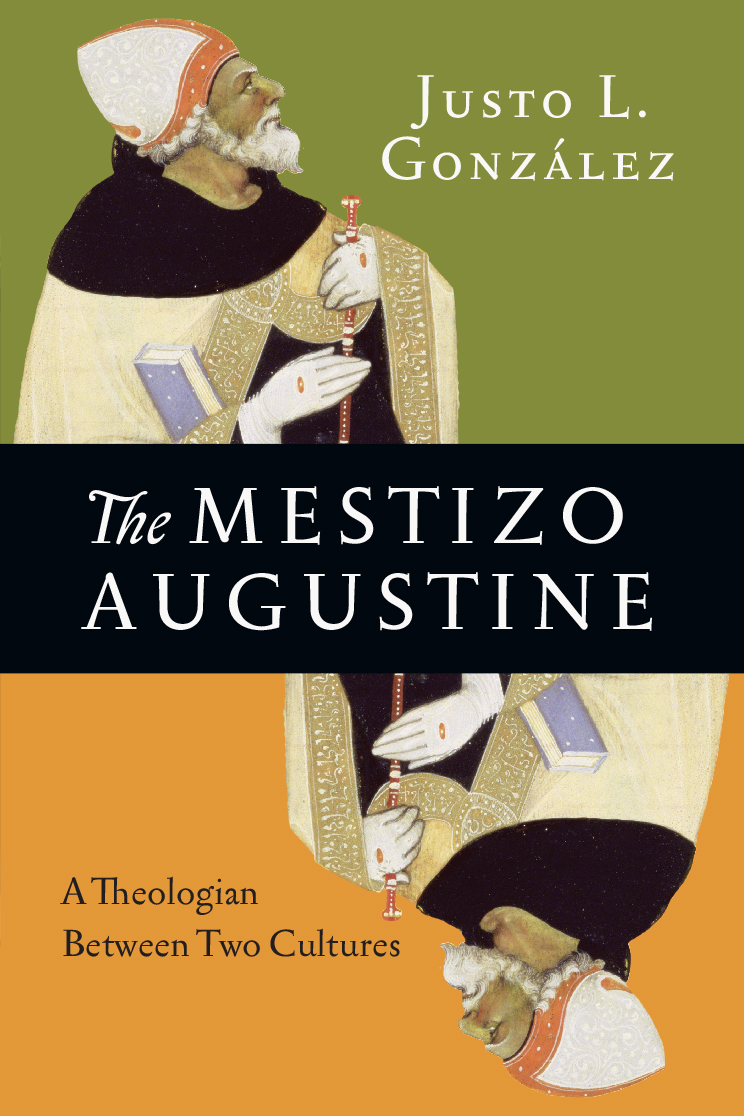 The Mestizo Augustine: A Theologian Between Two Cultures Justo Gonzalez (IVP Academic) $24.00 This is a recent book written by one of the great church historians of our time. We have carried his big and small works for those wanting an overview of the flow of Western church history. This one, though, is very special and a unique contribution. In keeping with the theme of this post, it seems so relevant to our questions today about justice and racial-reconciliation and globalization and how we are not the first ones to navigate such things. Augustine, as we should know, was both a Roman and an African — he was, after all, the Bishop of Hippo, in the Roman occupied region of Numbidia, what today we call Algeria (in Northern Africa.) He lived in that historical space between early Christianity and medieval Christendom, interacting with literature, philosophy, culture, theology, politics, church growth and parish life. Historian Mark Noll calls this new exploration “particularly insightful.” The brilliant scholar from Princeton, Eric Gregory, noting how many books there are on Augustine, says that “It is hard to think of one more timely for a new generation of readings than The Mestizo Augustine.
The Mestizo Augustine: A Theologian Between Two Cultures Justo Gonzalez (IVP Academic) $24.00 This is a recent book written by one of the great church historians of our time. We have carried his big and small works for those wanting an overview of the flow of Western church history. This one, though, is very special and a unique contribution. In keeping with the theme of this post, it seems so relevant to our questions today about justice and racial-reconciliation and globalization and how we are not the first ones to navigate such things. Augustine, as we should know, was both a Roman and an African — he was, after all, the Bishop of Hippo, in the Roman occupied region of Numbidia, what today we call Algeria (in Northern Africa.) He lived in that historical space between early Christianity and medieval Christendom, interacting with literature, philosophy, culture, theology, politics, church growth and parish life. Historian Mark Noll calls this new exploration “particularly insightful.” The brilliant scholar from Princeton, Eric Gregory, noting how many books there are on Augustine, says that “It is hard to think of one more timely for a new generation of readings than The Mestizo Augustine.
We thought we’d add it to this list of titles that are on sale, this weekend only. Order today.
BookNotes
DISCOUNT
30 % OFF
3 days only
sale expires April 3, 2017
order here
takes you to the secure Hearts & Minds order form page
just tell us what you want
inquire here
if you have questions or need more information
just ask us what you want to know
Hearts & Minds 234 East Main Street Dallastown, PA 17313
717-246-3333
